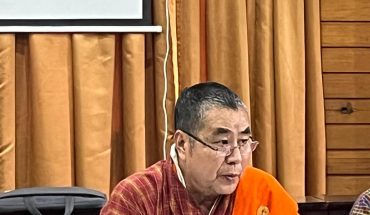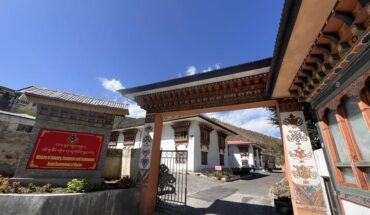In a democracy, trust is the bedrock on which institutions stand tall.
Today, that very trust stands shaken.
The Economic Stimulus Plan (ESP), meant to revive Bhutan’s pandemic-stricken economy, now sits under a cloud of suspicion, social media whispers, and deepening public skepticism.
What began as a noble initiative, meant to inject lifeblood into small businesses, innovation, and employment, has spiraled into a credibility crisis that threatens the very institutions tasked with serving the people.
On September 10th, the Prime Minister and the Opposition Party each asked the Anti-Corruption Commission (ACC) to investigate various allegations circulating on social media.
At the center are powerful names: the Health Minister, his son, business partners, the PM’s own brother, and a few big companies. The allegations, however, anonymous, are detailed, direct, and damaging.
Many of these claims have been contradicted by documentation, statements, and institutional verification from Bhutan Development Bank Limited (BDBL), T-Bank, and even Bhutan Insurance Limited (BIL).
The mere existence of such allegations, especially with named individuals speaks to a critical public concern: the absence of proactive transparency.
The Health Minister may be innocent, his son’s business may have followed every regulation, and the Prime Minister’s brother may have built a legitimate enterprise with nothing more than entrepreneurial grit.
But when information comes out through Facebook accounts instead of formal channels, and when the government refuses to release a full list of ESP loan recipients in the name of the Financial Services Act, trust is no longer protected.
ESP loans are public funds and are channeled through banks, facilitated by policy, and disbursed with national recovery as the goal. Every single Ngultrum must be accounted for. This is not a matter of political rivalry or personal attacks but of the duty to the people.
For the Opposition, pushing this issue without concrete evidence risks weaponizing half-truths and sowing chaos. Yet, their call for investigation is legitimate.
Their role as the watchdog of government action must be respected. However, to use allegations as political theatre, rather than as a means to clarify truth, will only deepen division and discredit their intent.
On the other side, if the government believes in its integrity, then let it led by example. Release summaries, allow anonymized data, and show the public how many ESP loans were approved, how many have turned into jobs, exports, or innovations. Shielding all this under legal interpretations is no longer convincing.
The ACC now faces a defining moment. Its work must be swift, impartial, and above reproach. A delayed or hushed response will only confirm the worst suspicions, whether or not they are true.
If there is wrongdoing, let justice fall like hammer on stone. If not, then let those who spread falsehoods face equal accountability.




